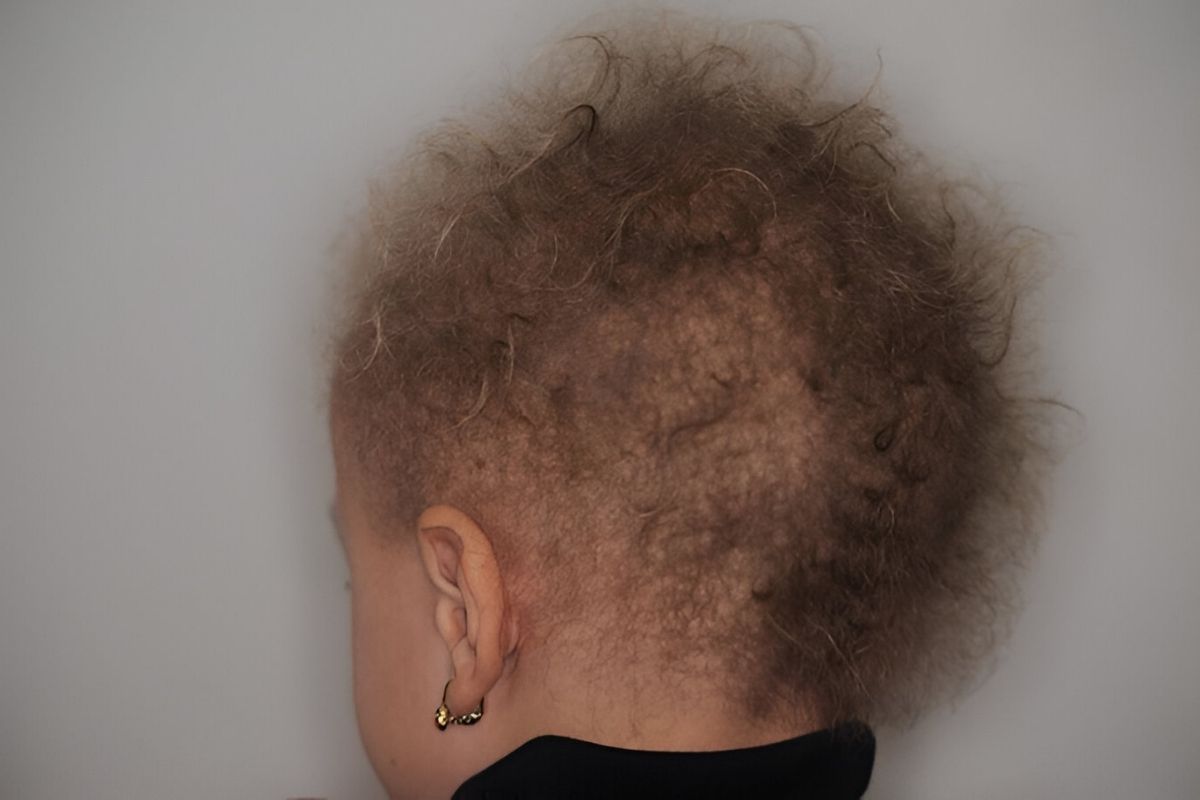
PIBI(D)S, or Photosensitive Immunodeficiency with Dysmorphic features and Skeletal abnormalities, is a rare genetic disorder that affects multiple body systems. This condition is characterized by a heightened sensitivity to sunlight, leading to severe skin reactions. Individuals with PIBI(D)S often exhibit unique facial features, growth delays, and skeletal abnormalities. The disorder is caused by mutations in specific genes responsible for DNA repair, making those affected more susceptible to infections and cancers. Understanding PIBI(D)S is crucial for early diagnosis and management, ensuring better quality of life for those impacted. Here are 50 intriguing facts about this rare condition that shed light on its complexities and challenges.
Key Takeaways:
- PIBI(D)S is a rare genetic disorder causing sun sensitivity, immune deficiencies, and developmental delays. Early diagnosis and multidisciplinary care can help manage symptoms and improve quality of life.
- Research on PIBI(D)S aims to understand its genetic roots and develop more effective treatments. Support groups and advocacy organizations provide resources and community for affected families.
What is PIBI(D)S?
PIBI(D)S stands for Photosensitive Immunodeficiency with Brachydactyly and Developmental Delay Syndrome. This rare genetic disorder affects multiple systems in the body, leading to a range of symptoms. Let's dive into some fascinating facts about this condition.
Genetic Basis of PIBI(D)S
Understanding the genetic roots of PIBI(D)S helps in grasping the complexity of this syndrome.
- PIBI(D)S is caused by mutations in the ERCC6 gene.
- The ERCC6 gene plays a crucial role in DNA repair.
- Mutations in this gene lead to defective DNA repair mechanisms.
- PIBI(D)S is inherited in an autosomal recessive pattern.
- Both parents must carry a copy of the mutated gene for a child to be affected.
Symptoms and Characteristics
PIBI(D)S manifests through a variety of symptoms, making it a challenging condition to diagnose.
- Photosensitivity is a hallmark of PIBI(D)S.
- Patients often develop severe sunburns with minimal sun exposure.
- Immunodeficiency is another key feature, leading to frequent infections.
- Brachydactyly, or short fingers and toes, is commonly observed.
- Developmental delays are prevalent, affecting cognitive and motor skills.
- Growth retardation is often seen in affected individuals.
- Skin abnormalities, such as pigmentation changes, are common.
- Eye problems, including cataracts, can occur.
- Hearing loss is sometimes associated with PIBI(D)S.
- Neurological issues, such as seizures, may be present.
Diagnosis and Testing
Accurate diagnosis of PIBI(D)S involves a combination of clinical evaluation and genetic testing.
- Clinical diagnosis is based on the presence of characteristic symptoms.
- Genetic testing confirms mutations in the ERCC6 gene.
- Skin biopsy may be performed to assess DNA repair capacity.
- Prenatal testing is available for families with a known history of PIBI(D)S.
- Early diagnosis is crucial for managing symptoms effectively.
Treatment and Management
While there is no cure for PIBI(D)S, various treatments can help manage symptoms and improve quality of life.
- Sun protection is essential to prevent photosensitivity reactions.
- Immunoglobulin therapy can boost the immune system.
- Antibiotics are often used to treat recurrent infections.
- Physical therapy helps address developmental delays.
- Occupational therapy can improve fine motor skills.
- Regular monitoring by a multidisciplinary team is recommended.
- Hearing aids may be necessary for those with hearing loss.
- Surgical interventions might be required for severe brachydactyly.
- Seizure management involves antiepileptic medications.
- Psychological support is beneficial for patients and families.
Research and Future Directions
Ongoing research aims to better understand PIBI(D)S and develop more effective treatments.
- Studies are exploring the molecular mechanisms of ERCC6 mutations.
- Gene therapy is being investigated as a potential treatment.
- Animal models are used to study the disease and test new therapies.
- Clinical trials are ongoing to evaluate novel treatment approaches.
- Research on DNA repair pathways may lead to breakthroughs.
- Patient registries help collect data and improve understanding.
- Collaboration between researchers and clinicians is crucial.
- Advancements in genetic testing improve diagnostic accuracy.
- Public awareness campaigns aim to educate about rare diseases.
- Funding for rare disease research is essential for progress.
Living with PIBI(D)S
Living with PIBI(D)S presents unique challenges, but support and resources are available.
- Support groups provide a sense of community for affected families.
- Educational resources help families understand the condition.
- Advocacy organizations work to raise awareness and support research.
- Access to specialized medical care is important for managing symptoms.
- Adaptive devices can improve daily living for those with physical limitations.
- Mental health support is crucial for coping with the emotional impact.
- Regular follow-up appointments ensure comprehensive care.
- Genetic counseling is recommended for affected families.
- Lifestyle modifications, such as avoiding sun exposure, are necessary.
- Empowerment through education and support improves quality of life.
Final Thoughts on PIBI(D)S
PIBI(D)S, or Photosensitive Infantile Biliary Dysplasia Syndrome, is a rare genetic disorder affecting liver function and causing photosensitivity. Understanding its symptoms, causes, and treatments is crucial for managing the condition. Early diagnosis can improve quality of life and help avoid complications. Genetic counseling is recommended for families with a history of PIBI(D)S.
Research continues to advance, offering hope for better treatments and possibly a cure. Awareness and education about PIBI(D)S can lead to earlier detection and support for affected individuals. If you or someone you know shows symptoms, consult a healthcare professional for proper diagnosis and management.
Stay informed and proactive in seeking medical advice. Knowledge is power when dealing with rare conditions like PIBI(D)S.
Frequently Asked Questions
Was this page helpful?
Our commitment to delivering trustworthy and engaging content is at the heart of what we do. Each fact on our site is contributed by real users like you, bringing a wealth of diverse insights and information. To ensure the highest standards of accuracy and reliability, our dedicated editors meticulously review each submission. This process guarantees that the facts we share are not only fascinating but also credible. Trust in our commitment to quality and authenticity as you explore and learn with us.
